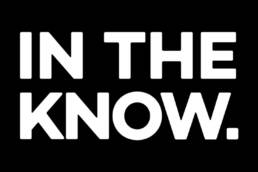“Adding Life to Years”
Dr. Larry Weiss
Center for Healthy Aging
The New Year: Planning for 2023
It has been a month already of the new year 2023. Now that we have done all the partying for starting a new year, it is an ideal time to explore ourselves and set goals. After exploration of our successes and failures in the past years, we then can make some plans for implementing better ways to achieve our desires. Let’s explore some areas that can help better analyze and structure our thoughts and planning for the new year enabling us to feel fulfilled and accomplished.
Creating a plan for the coming year can help you take the necessary steps to manage anything you may encounter, such as financial issues or interpersonal relationships. Planning for the future during the coming year can allow you to set goals and take the proper steps to reach them within a specific timeframe. Knowing you have a set plan for the coming year can inspire you to be motivated to keep working hard to reach your goals.
The main thing is to be honest with yourself. Start with what was positive and good. If you carefully remember what you have achieved and where you need to put more effort into goals and desires for the new year, then record them. Write down what your answers are to what has occurred in the past year as well as what your goals and desires are for the coming year. Your documentation and recording can be used next year so you can see how you have changed, what you have achieved and where you need to put more effort.
There have been many challenges this past year, especially when it comes to social interaction, health, and even politics in general. But if we have reached this point, it means that we have coped, that we have survived, and are strong. The most important plan for the next year is not to wait for miracles, but to create them ourselves, starting with what is positive. We cannot wait, we need to start now.
Let’s start by asking ourselves what was the best moments this past year. Recall your achievements and satisfactions. What was the most positive thing that I experienced? After you identify that, list other positive experiences and goals achieved during the year. What new things have I experienced this past year? How have my important relationships and friends been impacted? What issues and people did I help? Identifying all the positive things is an excellent start to putting your plan together.
Once you have accomplished the positive, focus on the failures. What things did I not manage to do this past year and want to do this coming year? What internal and external changes have happened to me during the year that caused me not to follow through on the goals that I did not accomplish? In thinking about this, don’t berate yourself for failure, it will only increase your guilt. Even negative experiences can be of invaluable benefit. Making plans is necessary in order to clearly articulate your desires.
Planning for the future involves setting goals which involves establishing specific objectives that motivate yourself to envision the future and contributes to your personal development. Planning goals that are relevant, specific, and achievable work the best.
You may have planned and set goals in the past that were difficult to achieve because they were too vague, aggressive or poorly framed. Working toward a poorly crafted goal can feel daunting and unachievable. You may be more likely to achieve your goals if you write them down and create a concrete plan for achieving them. This technique can be helpful for both small goals and for long-term large goals. Consider writing them down and keeping the list where you can see it daily to help you stay focused and motivated on accomplishing your goals.
Setting specific goals can help you ensure you know exactly what you’re trying to achieve and take the actions to do so. Try envisioning what achieving your objective result might look like. This can help you create a more specific goal and may enable you to create concrete steps for reaching that goal. Exact due dates enable you to break your goals down into milestones. With these milestones, you can create markers that are smaller and more manageable and that ultimately lead to your main goal. Rather than saying that you plan to reach a particular goal by next spring, write the exact date by which you plan to achieve your goal. If you’ve got a strong enough reason for wanting to achieve your goal planning, you may feel more motivated to succeed. The more specific and value-driven your goal is, the more likely you may be to follow through with it.
The more measurable your goals are, the greater chance you may have of achieving those goals because you can keep better track of what you accomplish and the work you still need to do. When possible, it may help to implement a metric for tracking your goal. For example, if you’d like to lose weight, you can select a measurable amount, such as losing 20 or 30 pounds, then measure your progress by weighing yourself at specified time as designed in the plan.
Mental negativity is a distraction and are challenging thoughts you may need to overcome to achieve a goal and fulfill your plan. Identify and write down every mental negativity you may have, then write rebuttals for each. If you had previously thought you weren’t smart enough to achieve something, remind yourself of instances in which you achieved something great. This can help counteract your mental objections and help you realize your immense capabilities. Things can change while you’re trying to reach a certain goal, so it’s helpful to evaluate and readjust your approach as you progress. Consider efforts that work well and those that might benefit from revision. You can also adjust the goal itself to ensure it remains relevant and attainable.
After learning how to make a plan and set goals, it may be helpful to consider what it might be like to achieve those goals. Once you achieve a goal, celebrate your success by treating yourself to a reward or sharing your good news with a friend or family member. Particularly for larger goals, taking time to feel proud of your accomplishments can help you energize yourself and maintain motivation in the future. You can also reflect on the process of setting and pursuing the goal. Consider the challenges and steps and determine which were most helpful. This can help you decide what goal to set next and what to include in your plan for that goal. What better way to plan for the future and “add life to years”.
Lawrence J. Weiss, Ph.D. is CEO of the Center for Healthy Aging. Dr. Weiss welcomes your comments on this column. Write to him at larryjweiss@gmail.com or c/o Center for Healthy Aging, 11 Fillmore Way, Reno, NV 89519.







































